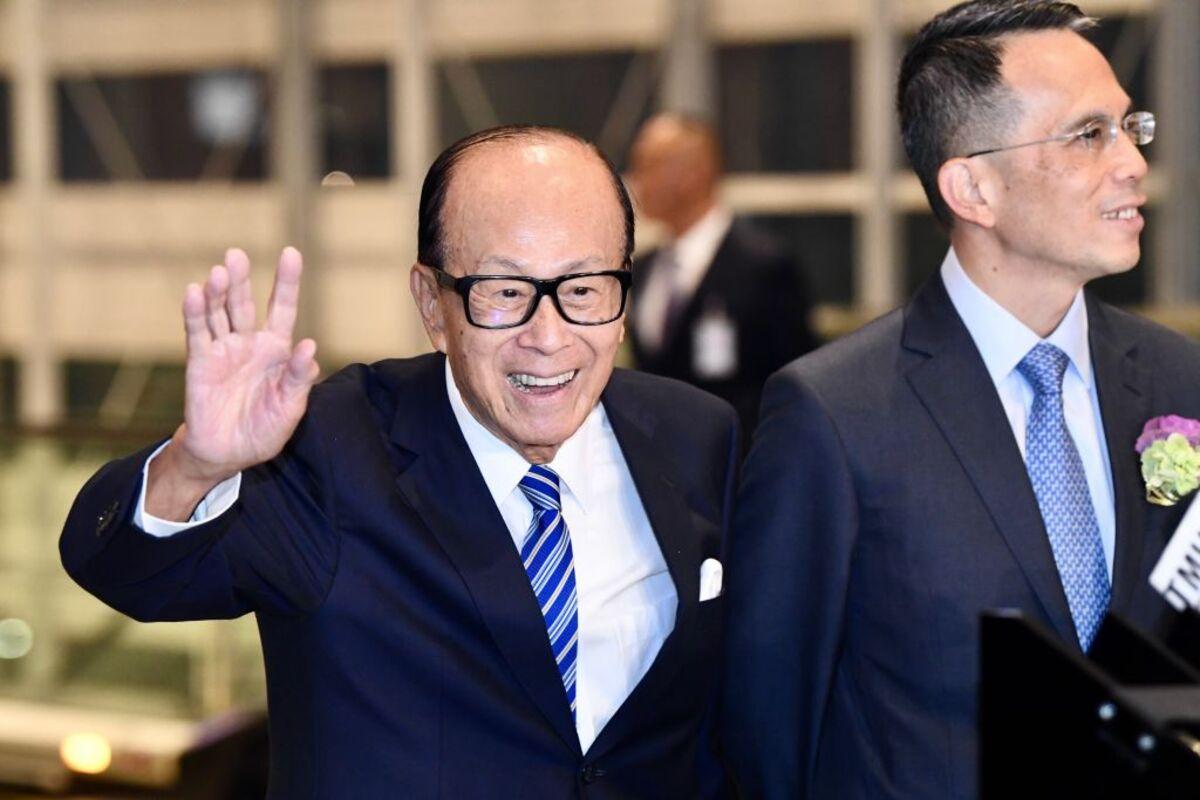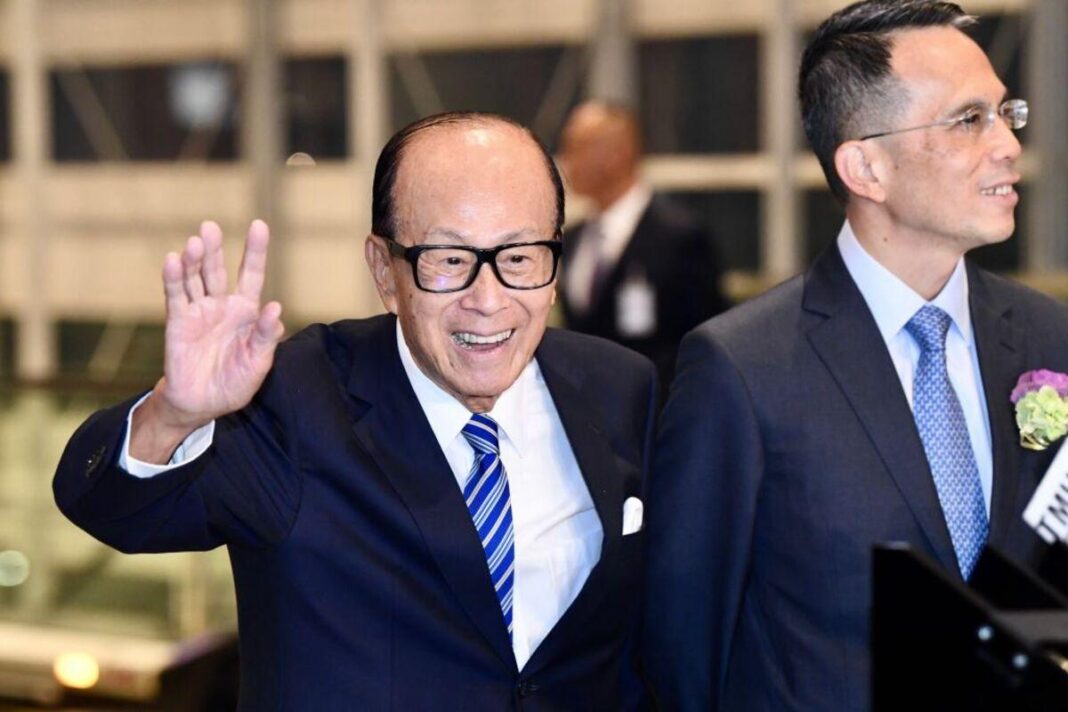“Power Play in Beijing: Xi Jinping’s Showdown with Li Ka-shing Threatens China’s Pro-Business Push” In the world of high-stakes politics, few battles have the potential to upend China’s economic trajectory like the brewing showdown between President Xi Jinping and billionaire tycoon Li Ka-shing. The news that Xi is taking aim at Li’s vast business empire has sent shockwaves through the markets, raising questions about the future of China’s pro-business agenda and the fate of its economic growth. For decades, Li’s HK listing conglomerate CK Hutchison Holdings has been a symbol of China’s openness to foreign investment and its commitment to free market principles. But with Xi’s tightening grip on power and his growing emphasis on state control, the once-unstoppable Li is now facing a daunting challenge. As we delve into the details of this high-stakes power struggle, one thing is clear: the outcome will have far-reaching implications for China’s economic prospects and its place
Impact on Foreign Investment

The recent Xi-Li showdown has sent ripples through the international business community, particularly regarding foreign investment in China. The dispute, centered around the alleged interference in the business operations of Li Ka-shing, a prominent Hong Kong-based businessman, has raised concerns among foreign investors. This dispute has not only impacted the confidence of existing investors but has also deterred new investors from committing to China’s market.
Potential for a Decline in Investment and Shift in Global Supply Chains
According to Unionjournalism’s analysis, the dispute has led to a potential decline in foreign direct investment (FDI) into China. Investors are now more cautious about the stability and predictability of the business environment. The conflict has caused many companies to reconsider their supply chain strategies, prompting a shift towards alternative markets such as Vietnam, India, and other Southeast Asian countries.
Foreign businesses are now more inclined to diversify their supply chains to mitigate risks associated with regulatory unpredictability and heightened political sensitivity. This shift could result in a significant reduction in FDI inflows, which could affect China’s economic growth and global market position.
Implications for Businesses Operating in China
For businesses currently operating in China, the dispute has brought about increased regulatory scrutiny, which can lead to operational inefficiencies and higher compliance costs. Companies are now faced with a more challenging legal and regulatory landscape, which may slow down their decision-making processes.
Additionally, there is a risk of reputational damage for companies seen as aligning closely with either side of the dispute. Businesses must carefully navigate the political climate to avoid being caught in the crossfire of any potential backlash.
Impact on China’s Economic Growth
Considering the broader implications, the disagreement between Xi and Li Ka-shing poses a significant risk to China’s economic growth. The potential effects on the country’s GDP and inflation rates are critical indicators of future economic stability and growth.
Potential Effects on GDP and Inflation
Unionjournalism’s economic analysts predict that the ongoing dispute could lead to a slowdown in China’s GDP growth. The risk of decreased foreign investment and the potential for operational disruptions within businesses could reduce productivity and lead to a contraction in economic activity. In addition, the heightened regulatory environment and political uncertainty might discourage consumer spending, further limiting economic growth.
On the issue of inflation, the dispute could exacerbate inflationary pressures. Increased operational costs due to regulatory changes and supply chain disruptions could lead to higher prices for goods and services. This could also impact the purchasing power of consumers and the overall economic stability of the country.
Practical Considerations for Business
Businesses operating in China need to be proactive in managing the risks associated with the Xi-Li dispute to maintain operational efficiency and market competitiveness.
Navigating the Crisis
Businesses must adapt to the changing regulatory environment by strengthening their compliance protocols and ensuring they adhere to all new regulations. It is crucial for companies to establish open lines of communication with regulatory bodies and maintain a transparent and cooperative relationship.
To mitigate risks, businesses should also consider diversifying their investments and supply chains beyond China. This could involve exploring opportunities in Southeast Asia, India, and other emerging markets. By doing so, companies can reduce their dependency on China and safeguard against any further disruptions to their operations.
Strategies for Maintaining a Positive Reputation and Building Relationships with Chinese Stakeholders
Maintaining a positive corporate reputation is vital during times of political and economic uncertainty. Companies should proactively manage their public image by engaging in transparent communication with stakeholders and demonstrating their commitment to corporate social responsibility. This includes supporting local communities and being responsive to the economic and social needs of the regions where they operate.
Building and maintaining strong relationships with local Chinese stakeholders is another critical strategy. Engaging with government officials, participating in local business associations, and fostering partnerships with local entities can help businesses navigate the challenging political climate and maintain a stable presence in the market.
Opportunities Amidst the Conflict
While the dispute presents significant challenges, it also opens up new business opportunities. Companies can capitalize on the uncertainty by diversifying their supply chains and exploring alternative markets. This diversification can reduce risk and offer new avenues for growth.
Furthermore, the conflict could lead to new business opportunities and partnerships. Companies may find new alliances and collaborations as competitors look to adapt to the changing landscape. These partnerships can help mitigate risks and capitalize on emerging market trends.
Conclusion
Xi Jinping’s Power Struggle Raises Concerns About China’s Economic Future
A recent article from Bloomberg has shed light on a long-standing power struggle between Chinese President Xi Jinping and billionaire entrepreneur Li Ka-shing, threatening the country’s pro-business push. The article highlights the tensions between Xi’s efforts to consolidate power and Li’s influence over China’s economy, particularly in the tech and finance sectors. Li, one of China’s most successful business leaders, has long been a vocal advocate for market-oriented reforms and a more business-friendly environment, which is at odds with Xi’s increasingly authoritarian approach. The article points out that Xi has taken steps to limit Li’s influence, including suppressing criticism of his policies and exerting control over the internet.
The implications of this power struggle are far-reaching, as China’s economic future hangs in the balance. A pro-business environment is crucial for China’s continued economic growth, which has been the driving force behind its rapid development over the past few decades. If Xi’s efforts to consolidate power succeed, it could lead to a decline in economic liberalization and a stifling of innovation, ultimately hindering China’s ability to compete with other major economies. Conversely, if Li’s influence is able to continue, it could lead to a renewed focus on market-oriented reforms, which could help to revitalize China’s economy.
As the power struggle between Xi and Li continues to unfold, one thing is clear: the future of China’s economy is precarious. The outcome of this showdown will have significant implications for the global economy, and for investors, policymakers, and business leaders around the world who are watching China’s progress with great interest. The question on everyone’s mind is: what will be the cost of Xi’s consolidation of power, and what does it mean for the future of China’s economic model?
